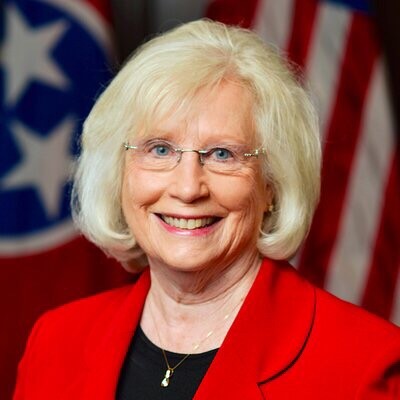Nature, rather famously, abhors a vacuum. And, for better or worse, few vacuums exist, year by year, in the calendar of elections for Memphis and Shelby County.
Leap years occupy a special space on the election calendar by reason of their being the occasion for presidential elections. In recent years, however, including the whole of the 21st century, Tennessee’s ever-increasing reliability as a red state has significantly eroded the excitement that used to go with its former status as a bellwether state, partisan-wise.
Once in a while, a fair amount of drama might attach to a Super Tuesday presidential primary in Tennessee, as it did, for example, in 2008, when Barack Obama and Hillary Clinton each had significant statewide campaigns going on the Democratic side. But normally there is an anti-climactic sense to those preferential primaries here, generally held in late February or March, the balance in both parties having already been tipped elsewhere — in Iowa or New Hampshire or South Carolina.

State senator and gubernatorial candidate Mae Beavers
The same steady process of Republicanization (how’s that for a coinage?) has increasingly applied to the rest of the electoral menu — including the races in even-numbered years for governor, U.S. Senate, the U.S. House of Representatives, and the Tennessee legislature — though some suspense is often generated in primary elections.
Such is likely to be the case next year, in what is shaping up to be a hotly contested (and well-financed) GOP primary for governor — with former state Commissioner of Economic Development Randy Boyd and Nashville businessman Bill Lee, both well-heeled, already running, ultra-rightist state Senator Mae Beavers of Mt. Juliet just declared, and 4th District U.S. Representative Diane Black, also wealthy, expected to jump in, along with presumed Shelby County favorite Mark Norris of Collierville, the state Senate majority leader.
Democrats, too, will likely have a primary choice, with popular ex-Nashville Mayor Karl Dean already campaigning and another party favorite, state House minority leader Craig Fitzhugh of Ripley, seemingly sure to throw his hat in. (And hark!: Even so well-grounded a judge of the state political scene as the Tennessee Journal‘s Ed Cromer suggests this week that 2018 could be a comeback time for Democrats in the gubernatorial race.)
On the local election scene, next year’s Republican primary for Shelby County mayor is set for a showdown between Shelby County Commissioner Terry Roland and County Trustee David Lenoir. On the Democratic side, former commissioner and longtime political broker Sidney Chism is one certain candidate. Others may emerge, with former commissioner and assistant University of Memphis law dean Steve Mulroy, who sought the office in 2014, being one possibility.
The identity of the latest primary challenger to 9th District Democratic congressman Steve Cohen, who has fairly easily knocked off several in a row, is uncertain, and 8th District GOP congressman David Kustoff would seem to be home free at this juncture.
Looking ahead into 2019, rumored possibilities to challenge Memphis Mayor Jim Strickland include former Democratic chair Keith Norman, pastor of First Baptist Church on Broad; Memphis Police Association president Mike Williams, who ran for the office in 2015; and Terrence Patterson, president and CEO of the Downtown Memphis Commission.
Meanwhile, in the current electoral “off year” of 2017, there is a special election in state House District 95 (Collierville, Germantown, Eads) for the seat vacated in February by former Representative Mark Lovell amid allegations of sexual harassment.
Though two independents, Robert Schutt and Jim Tomasik, are on the ballot, the race — to be decided next Thursday, June 15th — is considered to be between Republican nominee Kevin Vaughan, an engineer and real estate developer, and lawyer Julia Byrd Ashworth, the Democratic nominee.
The odds would seem to heavily favor Vaughan in a district that normally votes overwhelmingly Republican, but several factors at least theoretically give Ashcroft a fighting chance.
Among them: Vaughan’s involvement in a controversial local shopping-mall project; the unpredictability of turnout characteristic of all special elections (and amply demonstrated for this one by skimpy early-voting totals); and energetic under-the-radar efforts by Ashworth, who hopes to build on the success enjoyed last year by state Rep. Dwayne Thompson, a fellow Democrat who pulled off an upset win in adjacent District 96.